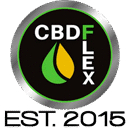Is Delta 9 Legal in Utah?
Is Delta 9 Legal in Utah? Delta 9 THC, or Delta-9-tetrahydrocannabinol, is a prominent cannabinoid found in the cannabis plant, known for its…
Is Delta 9 Legal in Utah?
Delta 9 THC, or Delta-9-tetrahydrocannabinol, is a prominent cannabinoid found in the cannabis plant, known for its psychoactive properties. Chemically, Delta 9 THC features a double bond on the ninth carbon in its molecular structure, which attributes to its interaction with the brain’s endocannabinoid system. This interaction often results in the “high” commonly associated with cannabis consumption.
Although Delta 9 THC shares a familial relationship with other cannabinoids such as CBD (cannabidiol) and Delta 8 THC, it presents distinct characteristics. Unlike Delta 9 THC, CBD does not induce psychoactive effects. Meanwhile, Delta 8 THC, a close cousin, offers a milder psychoactive experience because of its double bond positioning on the eighth carbon.
The history of Delta 9 THC is deeply intertwined with human civilization. Evidence of its use dates back thousands of years, rooted in ancient medicinal practices and cultural ceremonies. Historically, Delta 9 THC has been utilized for its therapeutic benefits, which include pain relief, anti-inflammatory effects, and the potential to alleviate symptoms of various ailments such as anxiety and nausea.
In contemporary times, Delta 9 THC has gained significant traction both in medicinal and recreational use. On the medical front, research continues to explore its efficacy in treating conditions like chronic pain, multiple sclerosis, and even certain forms of epilepsy. Recreationally, Delta 9 THC remains a popular choice among cannabis users due to its potent psychoactive effects.
The broader conversation surrounding Delta 9 THC also involves legal and regulatory aspects, especially given the varying state laws across the United States. Understanding these nuances is crucial, particularly in areas like Utah where cannabis legislation is a constantly evolving topic.
Federal vs State Laws on Delta 9 THC
The legal landscape surrounding Delta 9 THC, a prominent compound found in cannabis, is complex due to differing federal and state regulations. At the federal level, Delta 9 THC remains classified as a Schedule I controlled substance under the Controlled Substances Act (CSA) of 1970. This classification indicates that Delta 9 THC is considered to have a high potential for abuse, no currently accepted medical use, and a lack of accepted safety for use under medical supervision. Consequently, any possession, distribution, or manufacturing of Delta 9 THC outside specific federally sanctioned programs is strictly prohibited.
However, the federal landscape is not the full story. Many states have chosen to implement their cannabis regulations that either decriminalize or fully legalize the use of Delta 9 THC under specific contexts, particularly for medicinal or recreational use. For example, states like Colorado, California, and Oregon have established comprehensive frameworks for the legal commercialization of both medical and recreational cannabis, including products that contain Delta 9 THC. These frameworks often impose requirements for cultivation, production, sales, and consumer protections to ensure safe consumption and accessibility.
In contrast, states such as Texas and Idaho maintain stringent prohibitions on all forms of cannabis, including those containing Delta 9 THC. This dichotomy between federal and state laws creates a patchwork of legalization, criminalization, and everything in between, depending heavily on geographical location. As of now, Utah falls somewhere in the middle. The state allows for medical marijuana use under a tightly regulated structure but has yet to embrace full recreational legalization. This means that while patients with qualifying medical conditions can legally obtain Delta 9 THC through state-licensed facilities, recreational use remains illegal.
The variability in these regulations presents significant implications for residents, law enforcement, and policymakers, particularly concerning issues of enforcement, public health, and economic opportunity. Understanding the interplay between federal and state laws is crucial for anyone involved with Delta 9 THC, whether for medical purposes or broader legislation efforts.
Cannabis Legislation in Utah: An Overview
Utah has a nuanced approach to cannabis legislation, with significant progress made in the medical sector, while recreational use remains prohibited. The state’s journey began in earnest with the legalization of medical marijuana through the passage of Proposition 2 in 2018. This landmark measure allowed patients with qualifying medical conditions to obtain a medical cannabis card, giving them legal access to cannabis products, including those containing delta-9 THC and other cannabinoids like THCA and CBD.
Despite the success of Proposition 2, subsequent legislative sessions have seen efforts to further refine and clarify the existing laws. The Utah Medical Cannabis Act, passed shortly after the 2018 ballot initiative, aimed to address concerns over patient access and regulation. Notably, delta-9 THC in medicinal form is regulated to ensure safe consumption by patients, although the specifics of these regulations have continuously evolved to balance accessibility with public health considerations.
On the other hand, attempts to legalize recreational marijuana in Utah have been unsuccessful. Advocates have faced challenges in gaining legislative or voter support, keeping the recreational use of cannabis, and by extension delta-9 THC, illegal within the state. This legal landscape means that while patients with medical prescriptions can use cannabis, non-medical users must steer clear of such substances to avoid legal repercussions.
Given the dynamic nature of cannabis legislation, it is vital for residents and patients to stay informed about the latest developments. Various resources are available, such as the Utah Department of Health’s Medical Cannabis Program website, where updates on regulations and guidelines are frequently posted. For those interested in the nuances of specific legal texts, reviewing recent bills and amendments through the Utah State Legislature’s official site can provide deeper insights.
By understanding the current laws and how they apply to different cannabinoids, individuals can navigate Utah’s cannabis regulations more effectively and remain compliant with state requirements.
Current Legal Status of Delta 9 in Utah
The legal status of Delta-9 THC in Utah is defined by a complex interplay of state and federal regulations. As of now, Delta-9 THC, often simply known as THC, is strictly regulated in the state, particularly when compared to substances like CBD and THCa. Utah has distinguished itself by maintaining strict control over cannabis-derived products, impacting both medical and recreational users.
For starters, the recreational use of Delta-9 THC remains illegal in Utah. The state has not passed any legislation to decriminalize or legalize the recreational use of cannabis. Therefore, possessing or using Delta-9 THC in any form for recreational purposes can result in significant legal consequences, including fines and possible jail time.
However, the state has made some concessions for medical use. In recent legislative developments, Utah enacted the Utah Medical Cannabis Act, permitting the use of medical cannabis under strict conditions. This act allows for the medical use of Delta-9 THC for patients suffering from specific qualifying conditions such as chronic pain, epilepsy, and cancer. Individuals must obtain a Medical Cannabis Card through the Utah Department of Health and are subject to precise dosage and form restrictions, ensuring the consumption of Delta-9 THC remains within regulated limits.
Distinctions also exist between the permitted Delta-9 THC levels in various cannabis products. For instance, products containing low levels of Delta-9 THC, typically less than 0.3%, may be considered legal under specific regulations, akin to some federal guidelines concerning hemp-derived products. These low-THC products often find their way into the market as dietary supplements but remain under stringent scrutiny.
Recent legislative sessions have not significantly altered the stance on Delta-9 THC’s legality, though occasional rulings and amendments tweak the operational framework governing cannabis. The possession limits for medical cannabis cardholders are carefully monitored; typically, patients can possess up to a 30-day supply of medicinal cannabis within specified THC limits.
Medical Marijuana and Delta 9 THC in Utah
Individuals in Utah have the opportunity to legally obtain Delta 9 THC through the state’s medical marijuana program. This program has been established to provide patients with access to various cannabis-derived products, including Delta 9 THC, under strict regulatory guidelines. To participate in the program, patients must meet specific eligibility criteria.
Eligibility requires individuals to be diagnosed with a qualifying medical condition. The state of Utah recognizes several conditions including, but not limited to, chronic pain, cancer, epilepsy, HIV/AIDS, and multiple sclerosis. Once a patient is diagnosed, they must obtain a recommendation from a qualified medical provider, who is registered with the state’s Compassionate Use Board.
The application process for a medical marijuana card involves several steps. First, patients must register for an account on the Utah Department of Health’s electronic verification system. They must provide personal details and medical records supporting their qualifying condition. After registration, the medical provider will upload the recommendation to the system, and the patient will pay a fee to complete the application. Once approved, the patient receives a medical marijuana card, valid for either 30 days, six months, or one year, depending on the condition and discretion of the medical provider.
With a valid medical marijuana card, patients can purchase Delta 9 THC products from state-licensed dispensaries. These dispensaries offer a variety of products containing Delta 9 THC, including tinctures, capsules, transdermal patches, and concentrated oils. Additionally, cannabis flower and other forms of plant material are available, though their usage is often subject to further regulation to avoid recreational misuse.
Utah’s medical marijuana program is designed to ensure patient safety and compliance with state laws. By following the established guidelines, patients can benefit from the therapeutic effects of Delta 9 THC in a regulated and lawful manner.
Penalties for Illegal Possession or Use of Delta 9 THC
In Utah, the penalties for illegal possession or use of Delta-9 THC are stringent and multifaceted, reflecting the state’s commitment to controlling substances derived from cannabis. Being caught with Delta-9 THC can result in significant legal repercussions, including hefty fines and possible jail time, which are determined by the quantity in possession and prior offenses.
For first-time offenders found with small amounts of Delta-9 THC, the charges are typically classified as a Class B misdemeanor. This may involve a fine of up to $1,000 and a jail sentence of up to six months. However, possession of larger quantities or repeated offenses can escalate the charges to a Class A misdemeanor or even a felony, with corresponding increases in fines and incarceration times. A Class A misdemeanor can result in fines up to $2,500 and up to one year in jail. Felony charges, reserved for large-scale possession or distribution, can lead to fines of up to $10,000 and several years in prison.
Aside from fines and imprisonment, other legal repercussions may follow. Individuals convicted of possessing or using Delta-9 THC illegally may face a permanent criminal record, which can severely impact future employment opportunities, educational prospects, and the ability to obtain certain licenses or certifications. Furthermore, the court may mandate participation in drug education or rehabilitation programs as part of the sentencing. Repeated offenses often warrant stricter punishments, including longer mandatory rehabilitation programs or extended community service.
Utah’s stringent regulations and penalties are designed to deter the illegal use of Delta-9 THC and ensure public safety. For more detailed information and the most current legal provisions, referring to the Utah State Legislature website and official state legal texts is highly recommended.
Challenges and Controversies
The legality of Delta-9 THC in Utah is a subject of significant debate, marked by numerous challenges and controversies. Lawmakers in the state grapple with creating regulations that balance the potential benefits and risks. While some legislators advocate for strict regulations or outright bans due to concerns about public health and safety, others propose more lenient approaches to capitalize on the economic benefits cannabis-related products can bring.
Medical professionals often present a divided stance on Delta-9 THC. Proponents highlight the therapeutic potential of cannabis compounds, including Delta-9 THC, for treating chronic pain, epilepsy, and other medical conditions. However, opponents within the medical community caution against widespread use, pointing to risks of dependency, impaired cognitive functions, and possible long-term mental health issues. This dichotomy leaves patients and health care providers in a challenging position when considering cannabis-based treatments.
Advocacy groups also play a crucial role in shaping the discussion. Organizations supporting cannabis legalization argue that regulated use of Delta-9 THC could lead to significant economic benefits, including job creation and increased tax revenues. Conversely, groups opposing legalization emphasize potential negative societal impacts, such as increased youth access and potential misuse.
Public opinion in Utah remains somewhat polarized. While a growing segment of the population shows support for the use of cannabis products, including Delta-9 THC, for medical and recreational purposes, a sizeable portion remains wary. Concerns about public health, safety, and the societal implications of broader cannabis legalization persist among more conservative community members.
Economic considerations also fuel the debate. Legalizing and regulating Delta-9 THC could introduce a new market segment, potentially stimulating local economies. However, opponents argue that the social and health costs could outweigh economic gains. Municipalities and states with legalization policies provide mixed results, further complicating the evaluation of economic benefits versus societal impact.
Resources and Further Readings
For those seeking more in-depth information on the legality of Delta 9 THC in Utah, there are a variety of credible resources available. The following sources provide current and reliable data, ensuring you stay informed about the latest developments in cannabis laws in the state.
1. Utah State Legislature – This website offers comprehensive legal documents, including the full text of state laws and legislative updates regarding cannabis and Delta-9 THC. The Utah Code Title 58 Chapter 37 should be of particular interest.
2. Utah.gov – Utah’s official state website offers a wealth of information, including updates on regulatory changes affecting Delta-9 THC and other cannabis-related products.
3. Utah Department of Health – This resource provides detailed guidelines on medical cannabis use within the state, including information on qualifying conditions, patient registration, and legal limits on Delta-9 THC levels.
4. NORML: Utah – A reputable non-profit organization that provides tailored information specific to Utah’s cannabis laws and advocacy for reform. Their site includes well-researched articles and legal analyses.
5. The Salt Lake Tribune – A respected news outlet that frequently publishes articles on the evolving landscape of cannabis legislation in Utah. Their coverage includes expert analysis and updates on Delta-9 THC regulations.
6. Drug Policy Alliance – While not Utah-specific, this national organization offers extensive reports and articles on the broader context of cannabis legalization, including Delta-9 THC.
These sources will provide a more comprehensive understanding of the legalities surrounding Delta-9 THC in Utah. Always refer to official state documents and credible news reports for the most accurate and up-to-date information.







